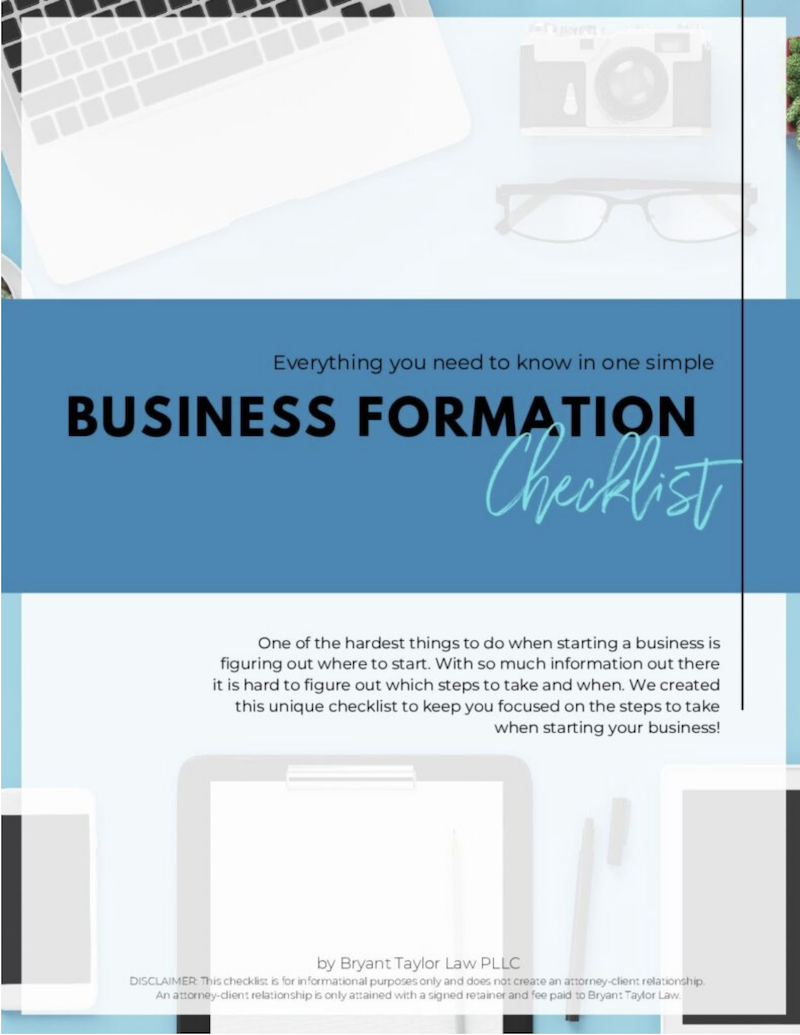 At Bryant Taylor Law, we regularly work with real estate investors looking to protect their investments and set up the optimal legal structure for their portfolios. Even if you’re just starting your real estate portfolio or have a wide range of properties to protect, it’s imperative to get this process right so you don’t face additional costs or legal issues in the future.
At Bryant Taylor Law, we regularly work with real estate investors looking to protect their investments and set up the optimal legal structure for their portfolios. Even if you’re just starting your real estate portfolio or have a wide range of properties to protect, it’s imperative to get this process right so you don’t face additional costs or legal issues in the future.
Putting your name on an investment can feel fulfilling and secure, but ultimately, holding multiple properties in your own name can actually expose you to numerous risks in the future. We want to explore those risks so you can avoid them before it’s too late.
Insurance coverage
One of the upfront issues with holding real estate in your own name is how insurance companies treat individuals vs. businesses (such as LLCs) that control a real estate portfolio. Coverage costs and limits are going to be more favorable for businesses because there is more security for a business as opposed to an individual.
Insurance coverage for an individual is often insufficient for the exposure lawsuits and other liability issues present to them. When a business is exposed to liability from a property it holds, the increased insurance coverage can protect you and the rest of your portfolio from damages.
Protecting other assets
When your insurance coverage for an individual property fails to cover damages in the event of a lawsuit, the payment has to come from somewhere else. For instance, if you own multiple properties in your own name and a tenant at one of the properties files a lawsuit against you, every single property is at risk. This is because owning the properties in your own name means all of those properties fall under the same point of liability: you.
So, if you don’t set up businesses or holding companies for your properties you could lose value on all of them from one incident. You could also lose your own home, your car, your savings, and other assets under your name. When the properties are held under the interest of a company, the properties within that company are the only assets exposed to liability.
Estate planning
If you hold several properties, your estate plan is imperative to make sure your hard work is passed into the right hands after you’re gone. If you already have beneficiaries or heirs to take over these properties after you’re gone you will need to make sure the plans are laid out in a way that avoids future disputes.
Owning properties in your own name vs. placing them inside of an LLC can make all the difference. Let’s consider this example: You own three properties and have three children. Property #1 is valued at $550,000. Property #2 is valued at $700,000. Property #3 is valued at $1.2 million. You decide to leave one property to each. If you own them all in your own name, the courts will not automatically allow you to move the properties individually because the courts will likely consider the cumulative value of your properties.
The total value of those three properties is $2.45 million. In probate, it’s likely the value of that $2.45 million will be split equally into three. This could cause headaches for your family and even disputes among your loved ones. Forming an LLC or multiple LLCs allows you to protect those investments and ensure the proper business succession plan is in place.
At Bryant Taylor, it’s our goal to ensure the best possible outcome for your real estate investments. There’s already an inherent risk in the process, so it’s important to avoid creating more unnecessary risk by not protecting those investments. If you need help managing your real estate portfolio or getting the right business structure and succession plan in place, contact our offices.
ventus
Latest posts by ventus (see all)
- The Role of a Business Attorney in Estate Planning - October 13, 2022




